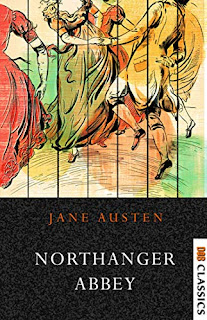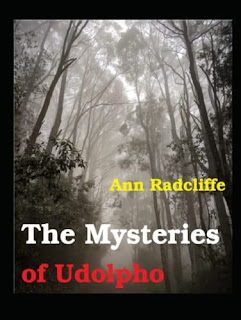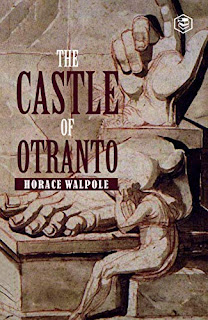H.M.S. Surprise
Published: 1973
Author: Patrick O'Brian
Book 3 of 21: Aubrey/Maturin Novels
Genres: Action, Adventure, British & Irish, Family Life, Fiction, Historical, Literary, Literature, Medical, Military, Navel, Saga, Sea, Suspense, Thriller, Travel, War
Check the summary of this book here:
The Review:
The third novel in Patrick O'Brien's series about the British Navy during the Napoleonic Wars, H.M.S. Surprise will thrill and educate you about the British Navy's sailing ships and the sailors and commanders' impressive technical ability.
While Patrick O'Brien does not minimize the British Navy's wrongdoings, he is definitely an admirer of the power, ships, and tactics but not the wrongdoings. If you don't want to read about a colonial power's exploits, this might not be the book for you. The storyline, on the other hand, is engaging, and there is enough information on flora and fauna in each of the ship's ports of call.
Maturin appears to be Patrick O'Brien's favorite character since he receives more attention in this novel than Aubrey, and I had the same impression in the previous book "Post Captain," when he was developed even further than he was in the first book "Master and Commander."
To convey the characters' inner thoughts, devices such as journals and letters are employed to great effect. It's a letter that has the finest description of Maturin to date, as well as a letter that ends with a serious blow.
H.M.S. Surprise continues ahead at a pleasant and engaging pace as O'Brian gains his groove as a storyteller. The plot is thrilling and enjoyable to read, and the characters are well-developed and engaging. This novel will appeal to anybody who is interested in 19th-century ships and naval history, or simply enjoy a good narrative but keep in mind that you'll need to read the preceding volumes to grasp some of the details and back stories of the characters and events.
If you're not used to the writing style and old navy terms, Patrick O'Brian's books can be difficult to get into at first, but once you do, you won't be able to put them down. They're full of historical action and are a must-read for those who enjoy books in the context of Bernard Cornwell, Angus Donald, or Steven A McKay because they all are a magnificent mash-up of reality and fascinating narrative.
It's difficult to add to Patrick O'Brian's list of accolades for the series. I doubt you could get any closer to the true narrative of life in the navy at the time; it highlights the changes that have occurred since then, particularly in terms of travel. A sailor's and officer's life aboard a wooden ship was difficult, and these brilliantly painted figures transport the reader back into that time a few centuries. I am confident that this and the other works will continue to be read with zeal in the future.
The novel is exceptionally well-researched, well-paced, and beautifully written, depicting the period of sail in exquisite detail, and there was yet another fantastic adventure. I wasn't expecting it to be as good as Master and Commander, but it needed to be given more credit. It was a good novel that made me want to start reading the series again, but time restrictions prohibited me from doing so.
Only one element that may irritate some readers is the amount of time spent on land, since it slows down the pace, and action oriented readers may become bored even if the story is not uninteresting. Basically, the speed at sea or on the water is as quick as the ship, but on land, it seems like you're reading a Jane Austen novel, but that's just how it feels, and it's still a fun read provided you understand that both sea and land are necessary for the story's forward motion.
Final Thoughts:
Anyone who enjoys a wonderful narrative with interesting characters, adventure, tension, and just the tiniest hint of romance should read every Patrick O'Brien novel, especially the Aubrey Maturin series. Add in the fact that they're based on the logbooks of RN captains who sailed during the period he's writing about, and you've got yourself a history lesson in the most entertaining way possible.
It's the best in its genre. Do yourself a favor and read Patrick O'Brian if you haven't already. Find the first book in the series, "Master and Commander," and embark on a fantastic voyage that will take a long time due to the series' 19 volumes.
You will not be reading about a period and amazing characters; you will be experiencing the time and meeting and knowing the characters because Patrick O'Brian was a real wordsmith and a creator of wonders.
If this is your first exposure to the world of Aubrey and Maturin, you are in for a magnificent adventure that will last a lifetime. In a lot of respects, these books are a treasure.
Synopsis:
“"Few, very few books have made my heart thud with excitement. H.M.S. Surprise managed it." —Helen Lucy Burke, Irish Press
In H.M.S. Surprise, British naval officer Jack Aubrey and surgeon Stephen Maturin face near-death and tumultuous romance in the distant waters ploughed by the ships of the East India Company. Tasked with ferrying a British ambassador to the Sultan of Kampong, they find themselves on a prolonged voyage aboard a Royal Navy frigate en route to the Malay Peninsula. In this new sphere, Aubrey is on the defensive, pitting wits and seamanship against an enemy who enjoys overwhelming local superiority. But somewhere in the Indian Ocean lies the prize that could secure him a marriage to his beloved Sophie and make him rich beyond his wildest dreams: the ships sent by Napoleon to attack the China Fleet.”
Useful Search Related Words & Keywords:
Action, Aubrey And Maturin, Billy Boyd, Botany Bay, British Navy, Character Development, Desolation Island, Drama, Diana Villiers, Early 19th Century, Fortune Of War, High Seas, Historical Fiction, HMS Surprise, Horrible Old, Indian Ocean, Jack And Stephen, Jack Aubrey, Jane Austen, Lucky Jack, Master And Commander, Maturin Series, Mauritius Command, Napoleonic Wars, Nautical Terms, Old Leopard, Patrick Brian, Patrick O’Brian, Patrick Obrian, Patrick O Brian, Paul Bettany, Peter Weir, Post Captain, Royal Navy, Russell Crowe, Stephen Maturin, United States, Uss Constitution, Well Written, Years Ago
Rating: 95/100
Recommended: 95/100 Yes.
Buy The Kindle Version Here:
Free With Free Audible Trial:
The Complete Aubrey/Maturin Novels (Hardcover):
Master and Commander (2003) (PG+):
- - - - - - - - - - - - - - - - - - - - - - - - - - - - - - - - - -
Any kind of support, even a simple 'like, thumbs up or a small comment' is enough and helps me grow, create and freely do more stuff and work on projects for the benefit of many.
Buy me a coffee: https://www.buymeacoffee.com/namsu
Help me grow into a global force: https://www.patreon.com/namsu
Support with crypto coins/tokens: https://cointr.ee/namsu
- - - - - - - - - - - - - - - - - - - - - - - - - - - - - - - - - -















